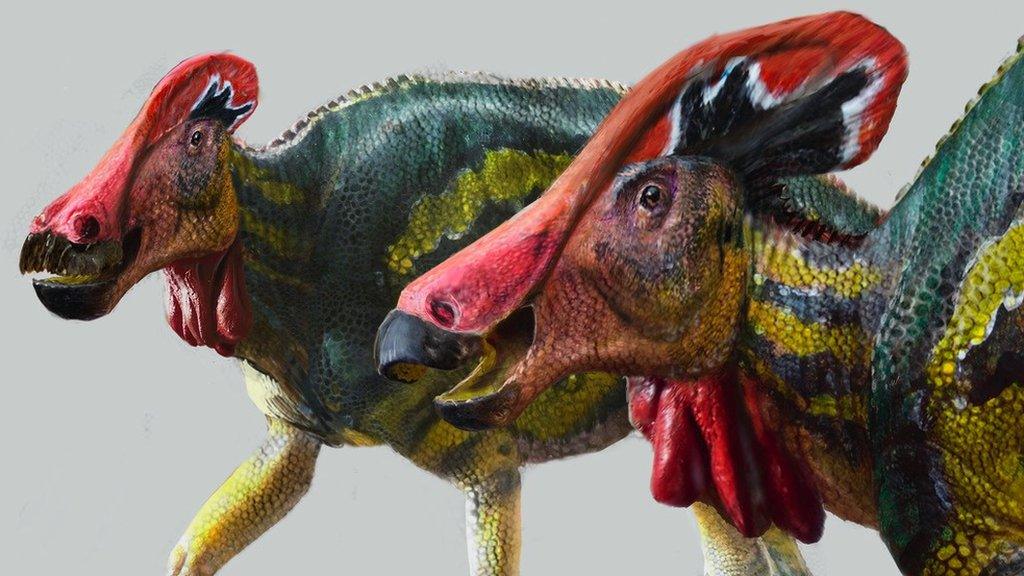Beetle found in 230 million-year-old lizard poo
- Published
- comments
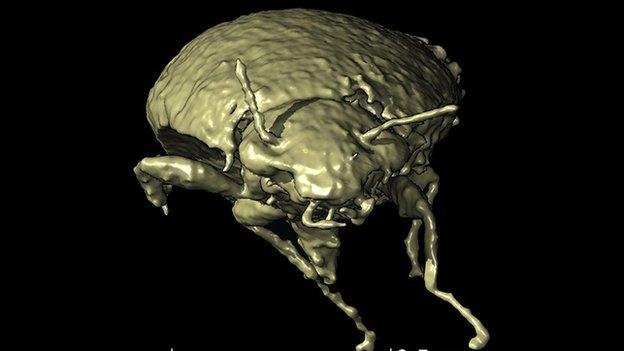
Fancy looking inside ancient poop to see what you can find? Well a group of scientists did just that - poop that's around 230 million years old to be precise - and discovered a beetle that no one knew existed before!
The tiny beetle has been found in fossilised droppings of the Silesaurus opolensis - a lizard like creature related to the dinosaurs.
It was a small, had a beak, weighed around 15kg and lived in what is now the country of Poland around 230 million years ago.
Scientists were scanning the inside of the poo, using special technology, to find more about what the animal ate when they discovered the special beetle.
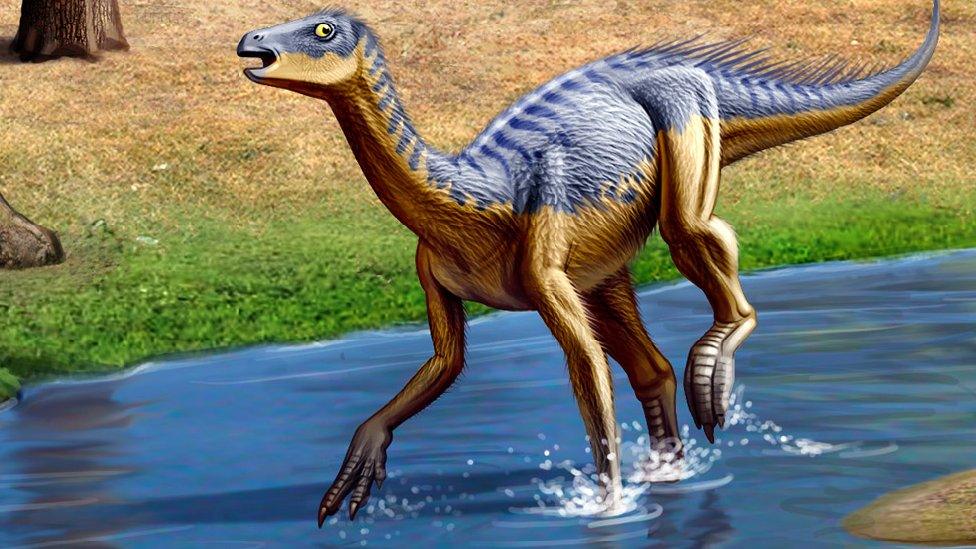
Here's what the Silesaurus is thought to have looked like
Researchers believe that the beetle was too small to have been the only prey for ancient lizard and instead may have been swallowed alongside larger beetles - but the remains of those insects didn't end up in the droppings in a recognisable shape.
It's got scientists excited as they believe it's the first time a new type of beetle has been discovered inside fossilised poo.
Usually creatures like it would be preserved in amber instead but this beetle is really well preserved inside the droppings with its legs and antennae fully intact.
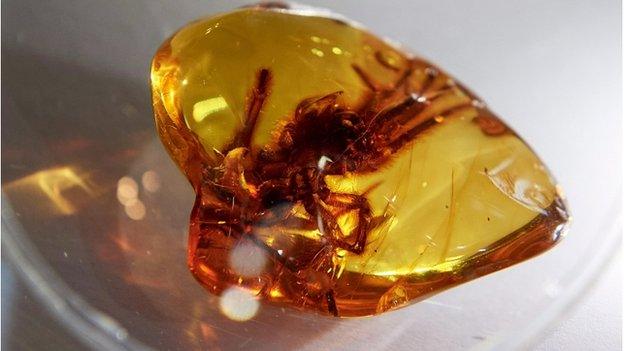
Scientists are used to finding beetles and other small creatures preserved in amber like this, rather than poo
And the beetle isn't going to be able to shake its pooey origins off either - scientists have given it the official name Triamyxa coprolithica because it was found in coprolites - the fancy name for ancient poo. Poor beetle!
Martin Qvarnstrom, from Uppsala University in Sweden, is one of the scientists behind the discovery. He's pretty excited with it and said: "We were absolutely amazed by the abundance and fantastic preservation of the beetles in the coprolite fragment.
It might just be ancient poo to us but as Martin Qvarnstrom said: "There are heaps of things you can study based on fossilised droppings."
- Published23 April 2019
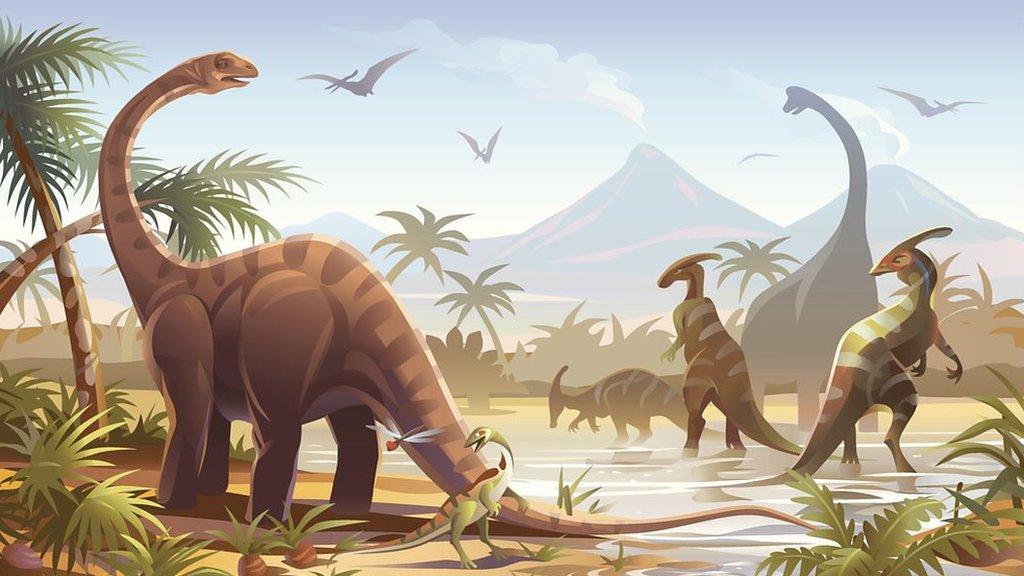
- Published28 January 2021
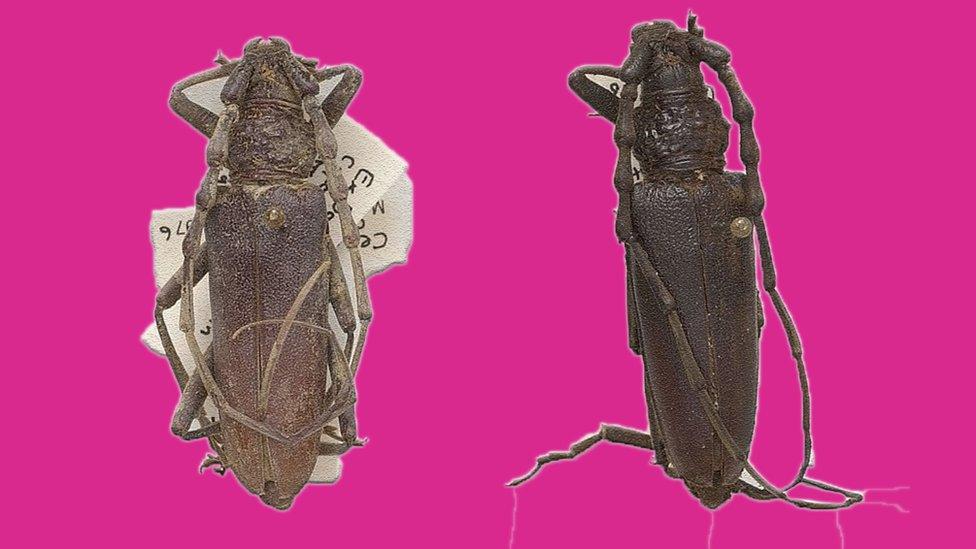
- Published28 April 2021
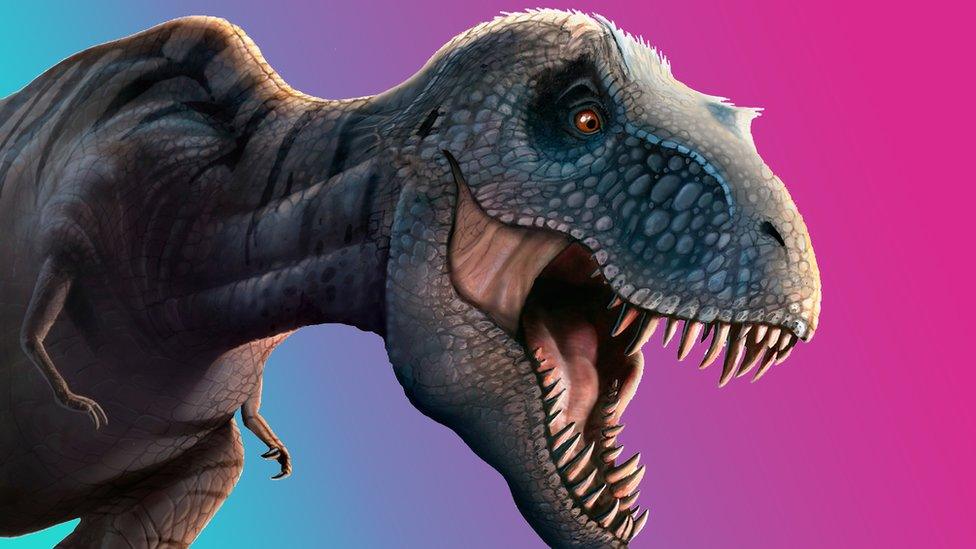
- Published15 May 2021
